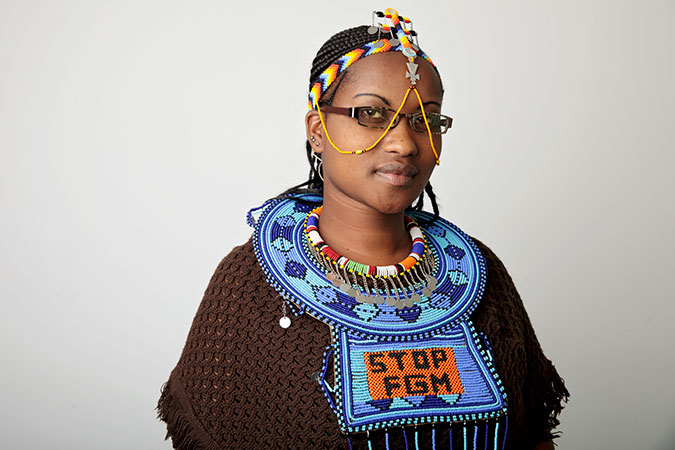From where I stand: “What we need is free education for girls”
Purity Soinato Oiyie is a Maasai girl from Kenya who escaped Female Genital Mutilation and child marriage. She spoke at the opening session of the 62nd UN Commission on the Status of Women, the UN’s largest gathering on gender equality and women’s rights. In her own words, she shares her story and her dream to start a school for girls in her community.Date:

![]()
I was only 10 or 11 years old, when my father decided to circumcise me. I was to become the fifth wife to a 70-year-old man. I talked to my class teacher and she informed the police chief. Just two hours before the cutting ceremony, the police came and took me away.
I lived in the rescue centre in Narok town for eight years. It was far from my village…until that day, I hadn’t even seen a tarmac road.
The hardest thing for me was leaving home, leaving my family. I couldn’t sleep…I would wake up in the middle of the night and think, should I go back and get FGM?
My father started beating my mother at home, blaming her for my escape. But my mother didn’t want me to go back and get circumcised. I stayed in the rescue centre and finished school.
Today, I work with World Vision and the Kenyan anti-FGM Board to help raise awareness among people in the villages. It’s difficult to convince people to stop FGM because it’s a cultural practice. I go to the schools and talk to the girls and the teachers, I talk to the Maasai people in our language. I show them videos of FGM, make them aware of its effects, and tell them about the importance of education. They are surprised to see an educated Maasai girl.
I also talk to the boys, and once they understand how FGM affects girls, they can refuse to marry girls who have undergone FGM.
[This is a good beginning], but what we need is free education for girls. The Maasai are pastoral people and many parents don’t have money to send their girls to school.
Today, my father is so proud of me. He is telling everyone that I have come to New York! Now all the parents in my community who didn’t want their girls to go to school, tell their girls to finish school, like Purity!
I want to set up a foundation called “Silan”—that means girl, in Maasai—and build a free school for all the girls in the village—even the ones who have been married young and now have children themselves.
When I go back to my community, I will have so many stories to tell! I have learned at CSW that we do not have to beg for women’s rights. Being women, we deserve this right. It’s ours.”
Purity Soinato Oiyie, 22, from Narok County, Kenya, was barely 11 when she was rescued from Female Genital Mutilation and child marriage. She is from Kenya’s indigenous Maasai community and against all odds, completed her education. The first girl in her village to say no to FGM, she now empowers other girls and parents to reject this harmful practice. Her work contributes towards Sustainable Development Goal (SDG) 5, which explicitly targets to end all forms of violence against women and girls, including harmful practices like FGM, as well as SDG 4, which promotes lifelong education and learning for women and girls.